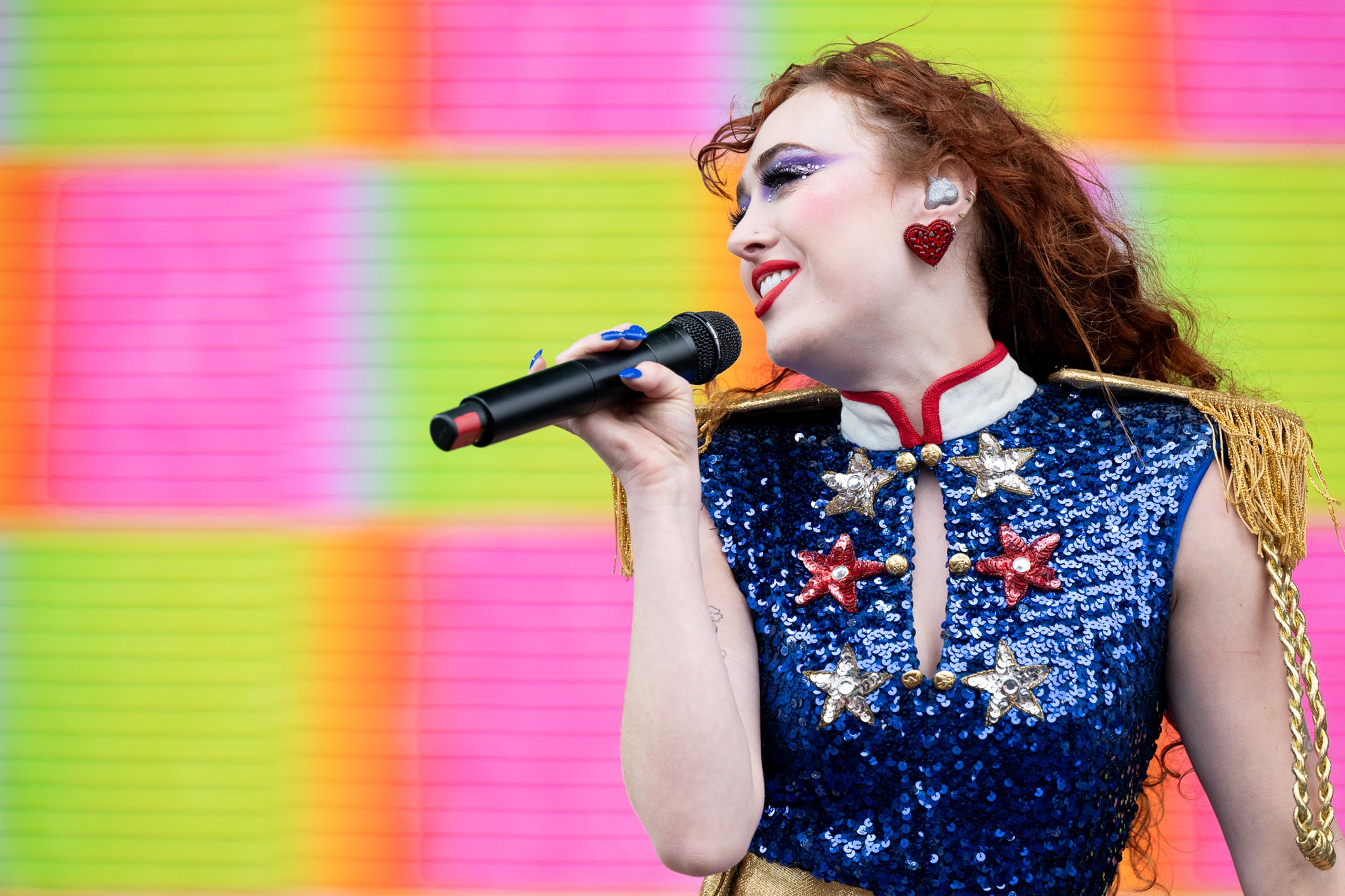Chappell Roan dominated the pop conversation this year. Her 2023 debut album The Rise and Fall of a Midwest Princess, a lyrical showcase of queer-positive pageantry, skyrocketed into the stratosphere with six previously released singles charting simultaneously on the Hot 100 alongside her lone 2024 single “Good Luck, Babe!” She was met with adoration and attention, unlike anything she’d ever experienced before. As her fame grew, her perfectly curated persona began to crack. Given the complicated nature of parasocial relationships, as Slate’s Cat Cardenas noted, she tore away the glittery exterior to reveal the person behind the mask—in doing so becoming this generation’s perfect anti-popstar.
For a decade, Roan slowly assembled the building blocks of her career through various indie and mainstream releases, including the 2014 drop of “Die Young” on her YouTube channel and 2017’s School Nights EP, her debut project issued for Atlantic Records. As her musical aesthetic shifted in the early 2020s, her fame diffused from soft, delicate twinkles into a bursting supernova. Early singles like “California” propelled her closer to the pop throne, teasing an artist on the verge of world domination. More tracks followed in the next two years, including “Pink Pony Club” and “Casual.”
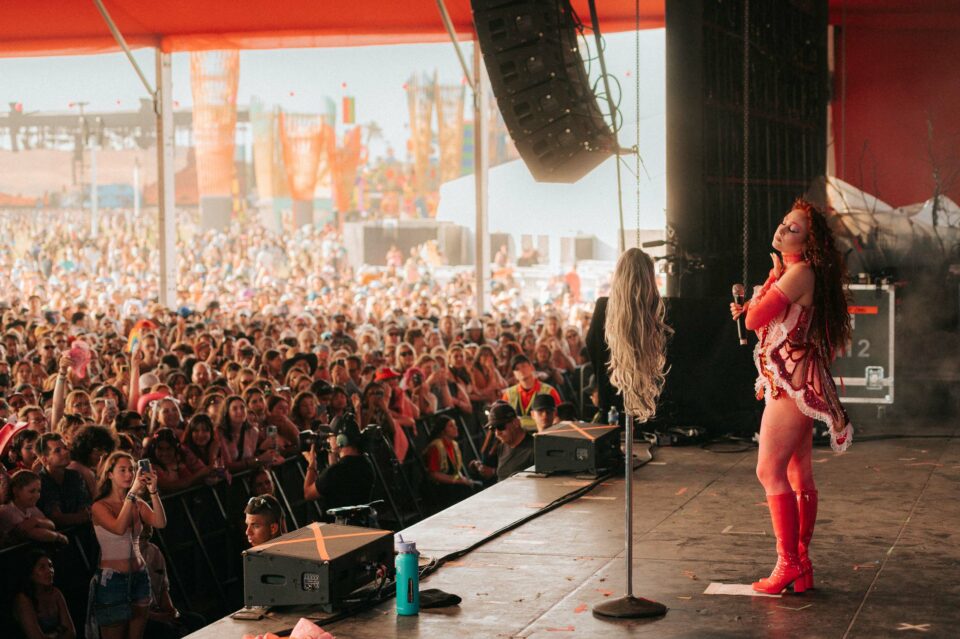
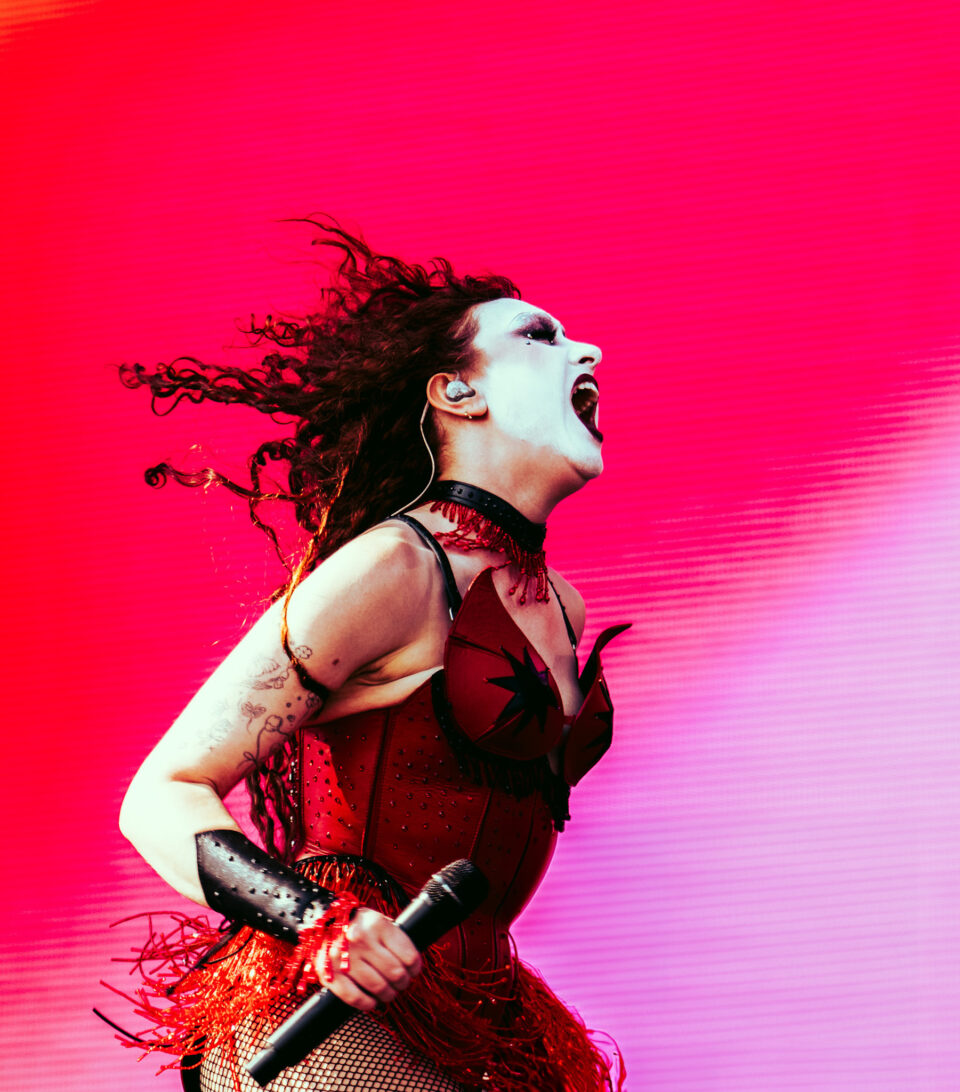
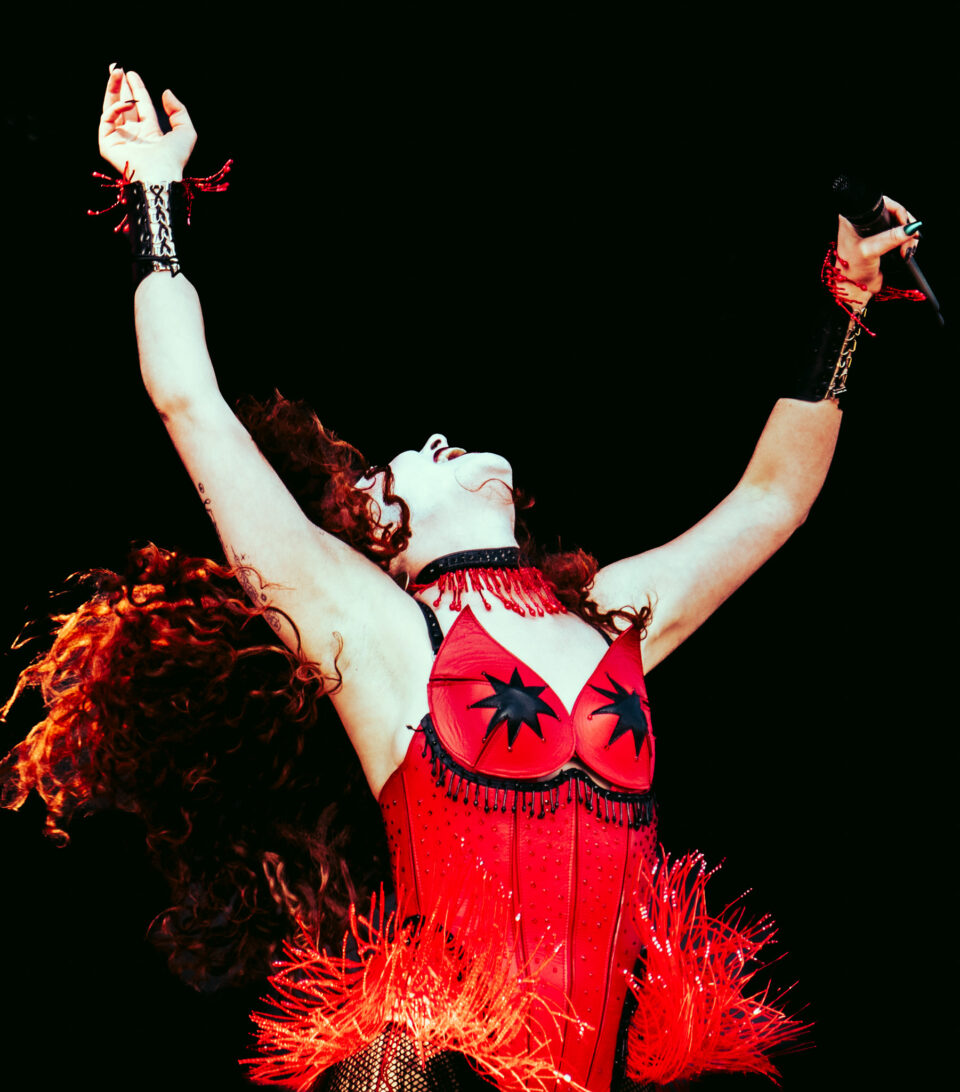
Chappell Roan
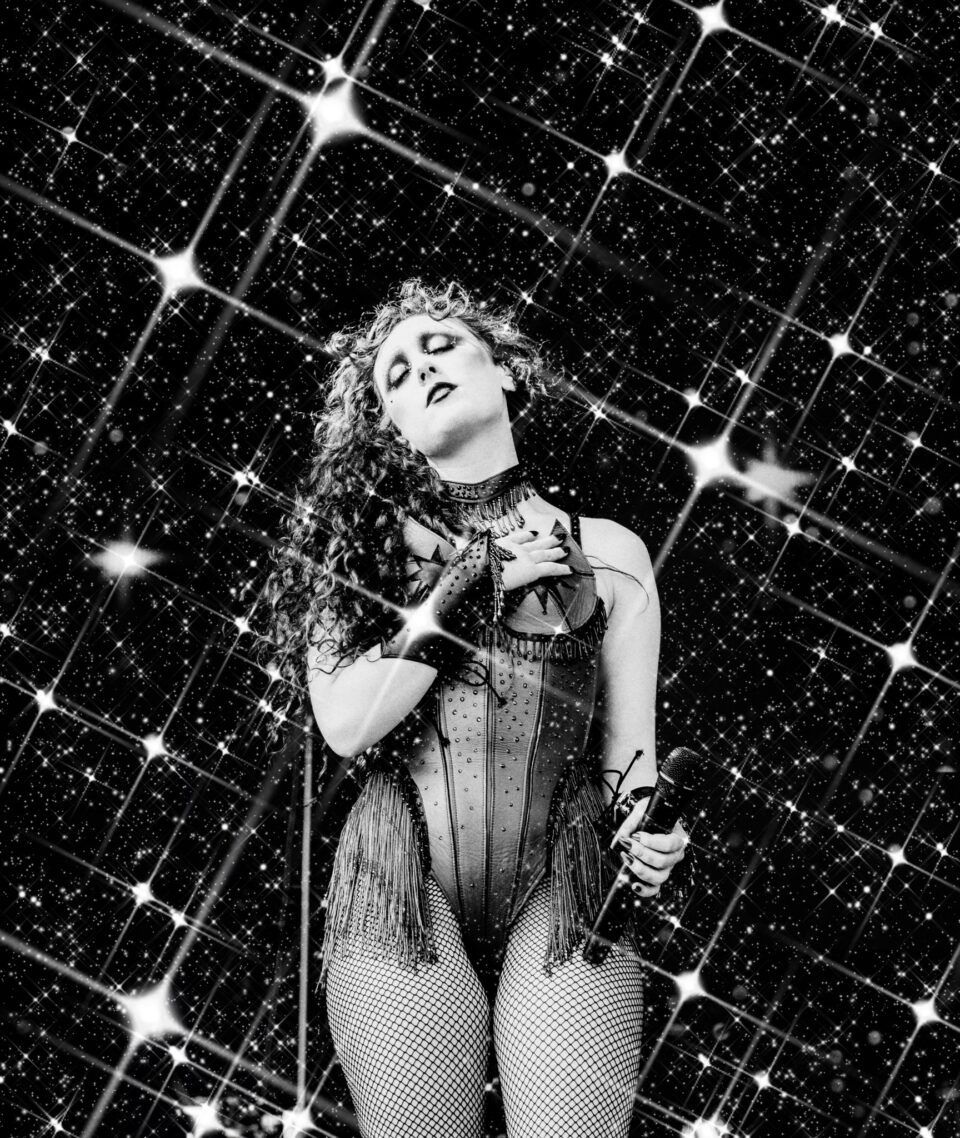
Boston Calling 2024 / photo by Skylar Watkins
By the time Roan released Midwest Princess, she’d cultivated a rabid fanbase, mounted two solo headlining tours, and earned a slot as an opener on Olivia Rodrigo’s GUTS tour. Within a few short months, her debut LP rose into the Top 5 on the Billboard 200, and she turned into a must-see attraction at several primetime musical festivals. There was no stopping her locomotive trajectory—her two appearances at Coachella were the talk of the music scene, as was her performance at Governors Ball. It quickly became evident that she harnessed greater power than any of her class of peers, and the year had barely reached the halfway point.
Her star continued to crash through the stratosphere as she took to Lollapalooza in August and shattered the record books. Roan’s should-have-headlined stint—wherein she swapped time slots with Kesha in order to better accommodate a sizable percentage of Lolla’s 110,000 daily concertgoers—best demonstrates the performer’s meteoric rise. She was originally scheduled for a much smaller stage, but plans were changed when fan demand outweighed that of other artists. By late summer, Chappell Roan’s place as the voice of the new generation could no longer be denied.
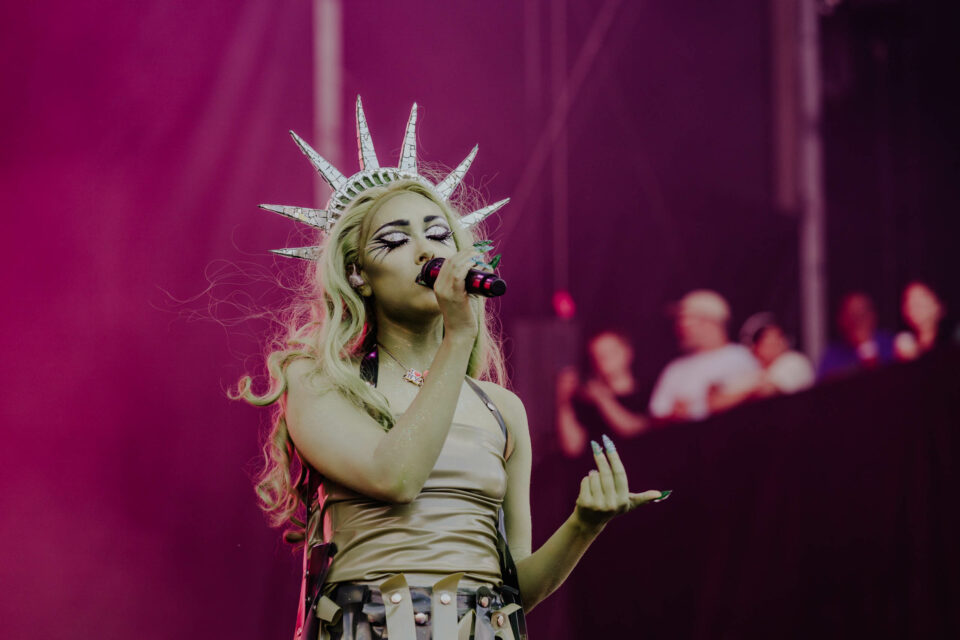
Chapell Roan at Governors Ball / photo by Merissa Blitz
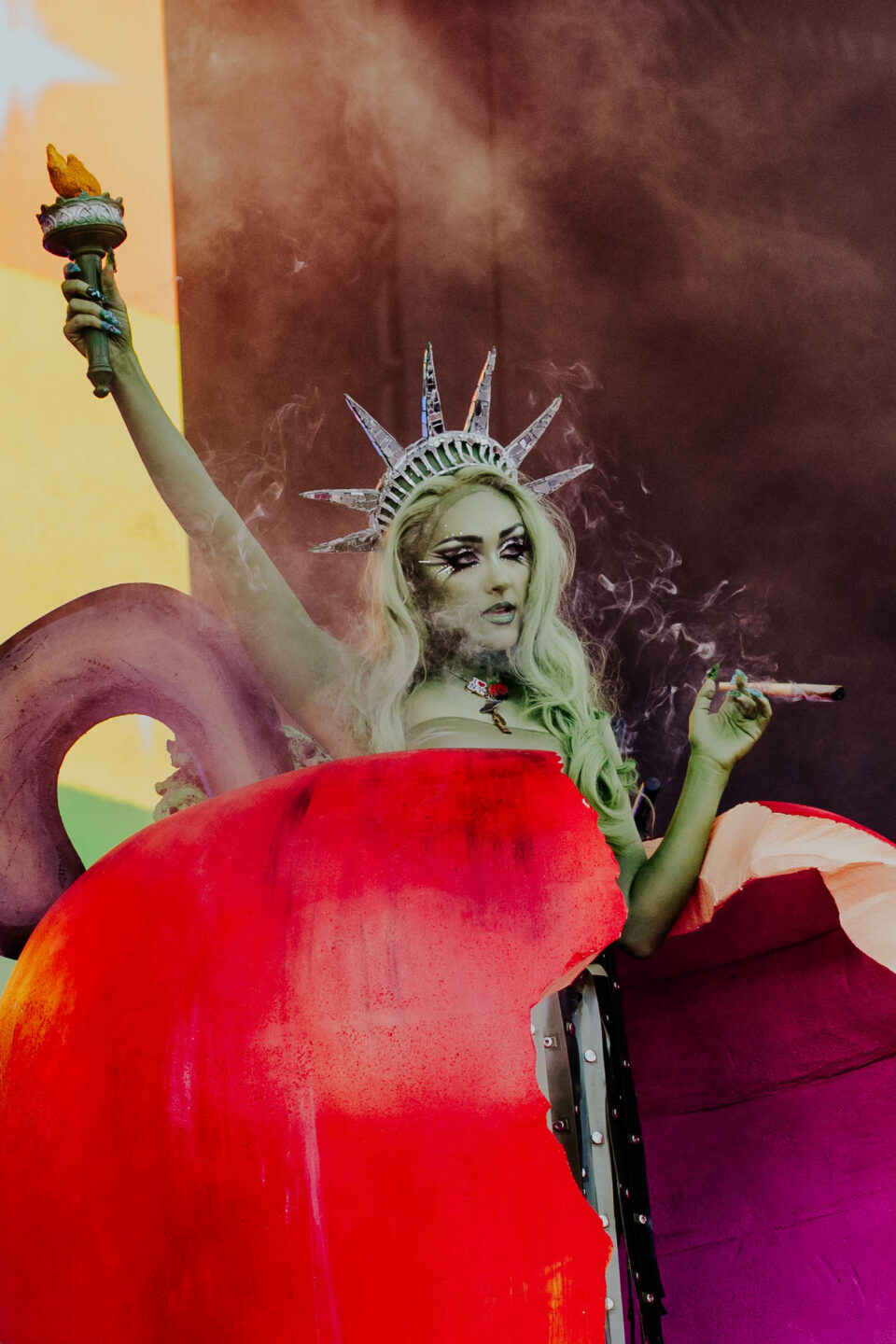
Chapell Roan at Governors Ball in New York, NY, / photo by Merissa Blitz
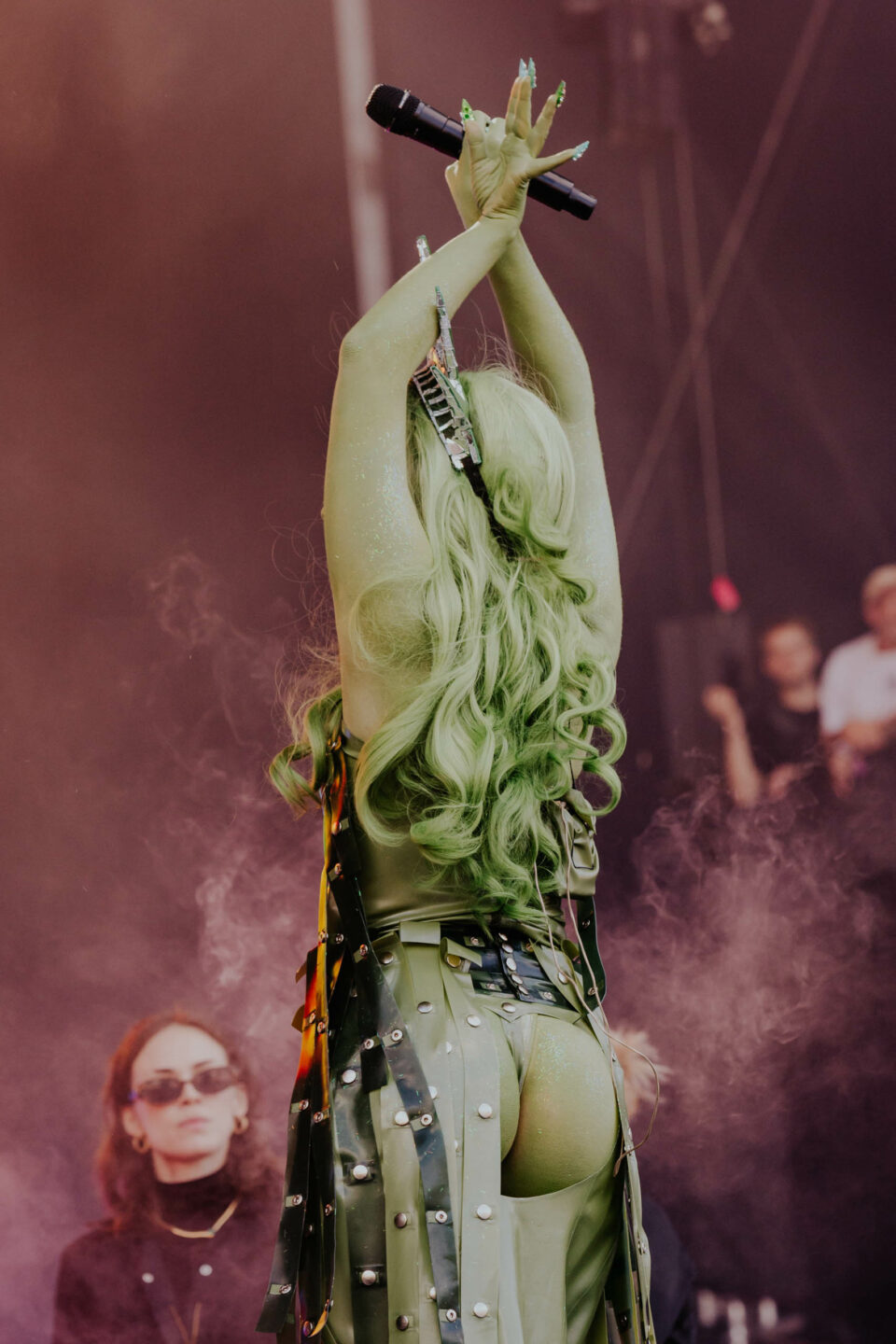
Governors Ball / photo by Merissa Blitz
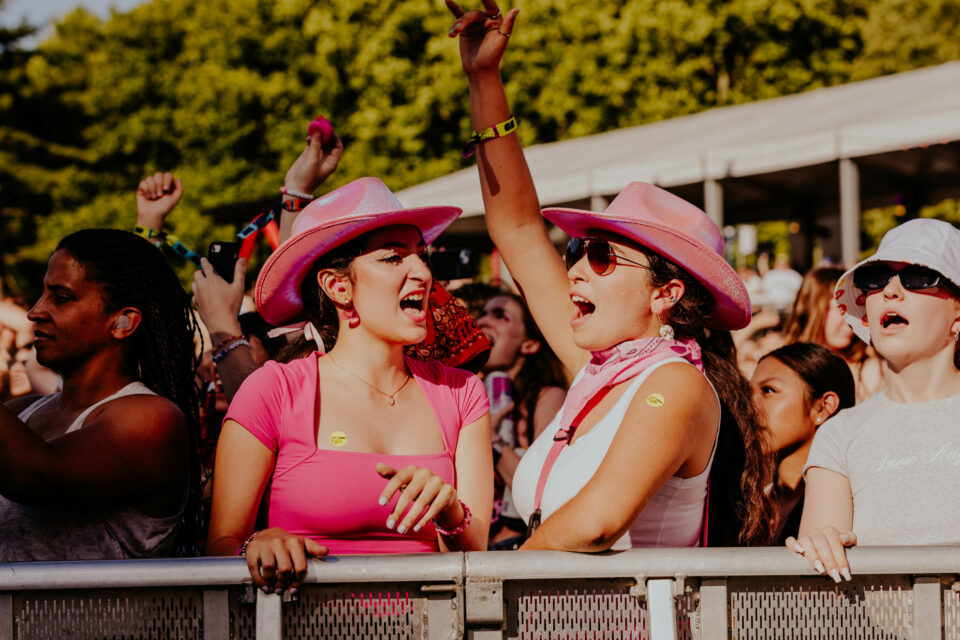
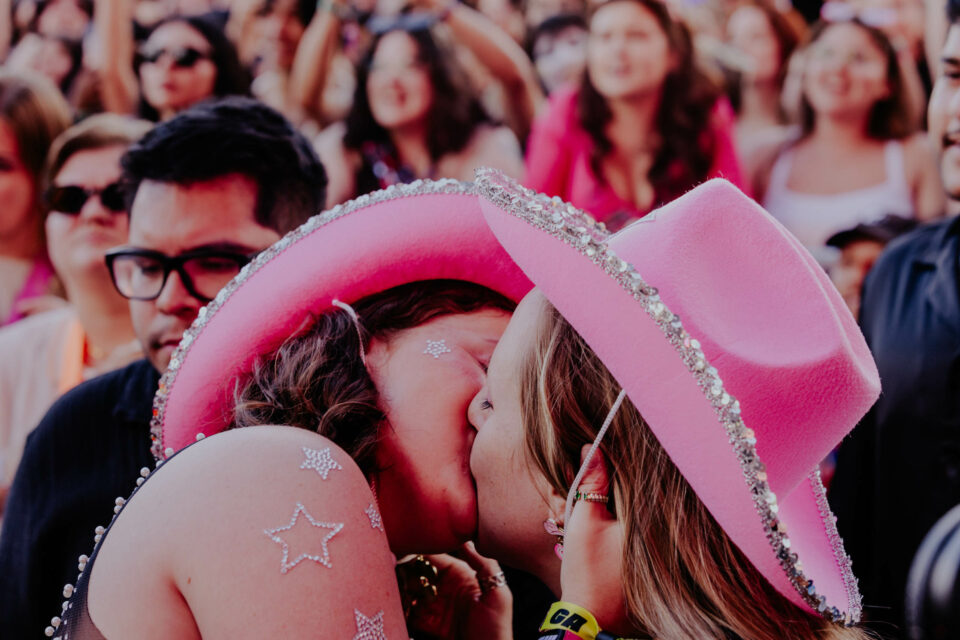
Governors Ball 2024 / photo by Merissa Blitz
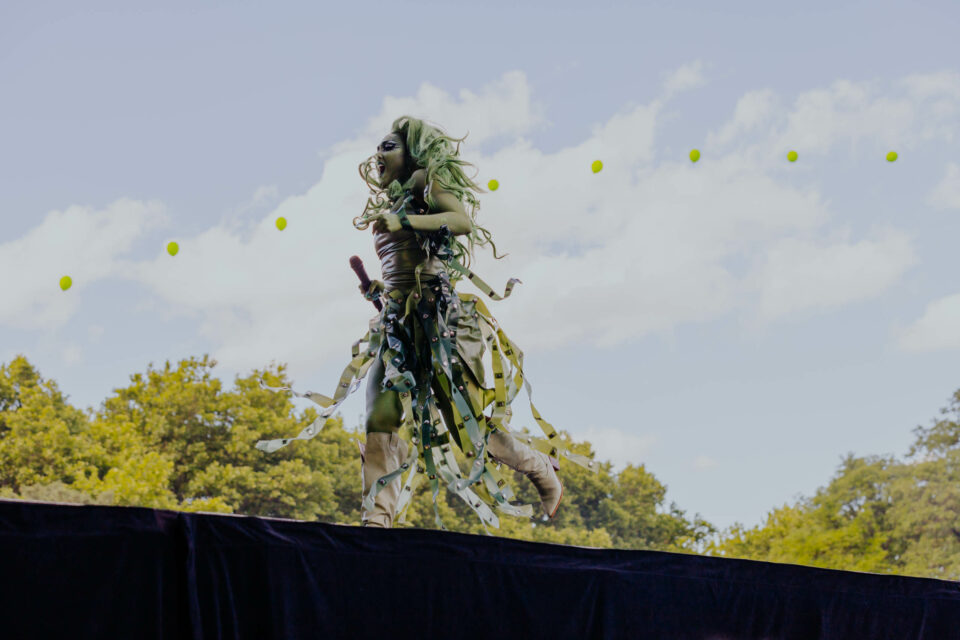
Governors Ball 2024 / photo by Merissa Blitz
Her newfound fame came with a hefty price tag, however. Unlike previous generations of public figures, the internet drastically changed how we relate to our favorite pop stars. In August, Roan took to TikTok and expressed frustration over fans stalking her and her family. “I don’t care that abuse and harassment, stalking, is a normal thing to do to people who are famous,” she said in one video. “I don’t care that it’s normal. I don’t care that this crazy type of behavior comes along with the career field I’ve chosen. That does not make it OK. That doesn’t make it normal. It doesn’t mean I want it. It doesn’t mean that I like it. I don’t want whatever the fuck you think you’re supposed to be entitled to whenever you see a celebrity.”
Her comments lit the internet on fire. While many applauded her for setting necessary boundaries, others didn’t take too kindly to her videos. Casual fans and the general public expressed anger toward the singer, claiming she just isn’t equipped for the spotlight. “Chappell Roan just needs to accept she doesn’t want this level of fame,” concluded one Reddit user in a lengthy post titled “Chappell Roan isn’t meant to be famous.” Written following a series of canceled festival appearances and one-off shows, the post aptly summarizes the controversy surrounding the artist, who was then compared by the author to such artists as Taylor Swift, Ariana Grande, and Katy Perry for their handling of crushing fame and clamoring fan requests.
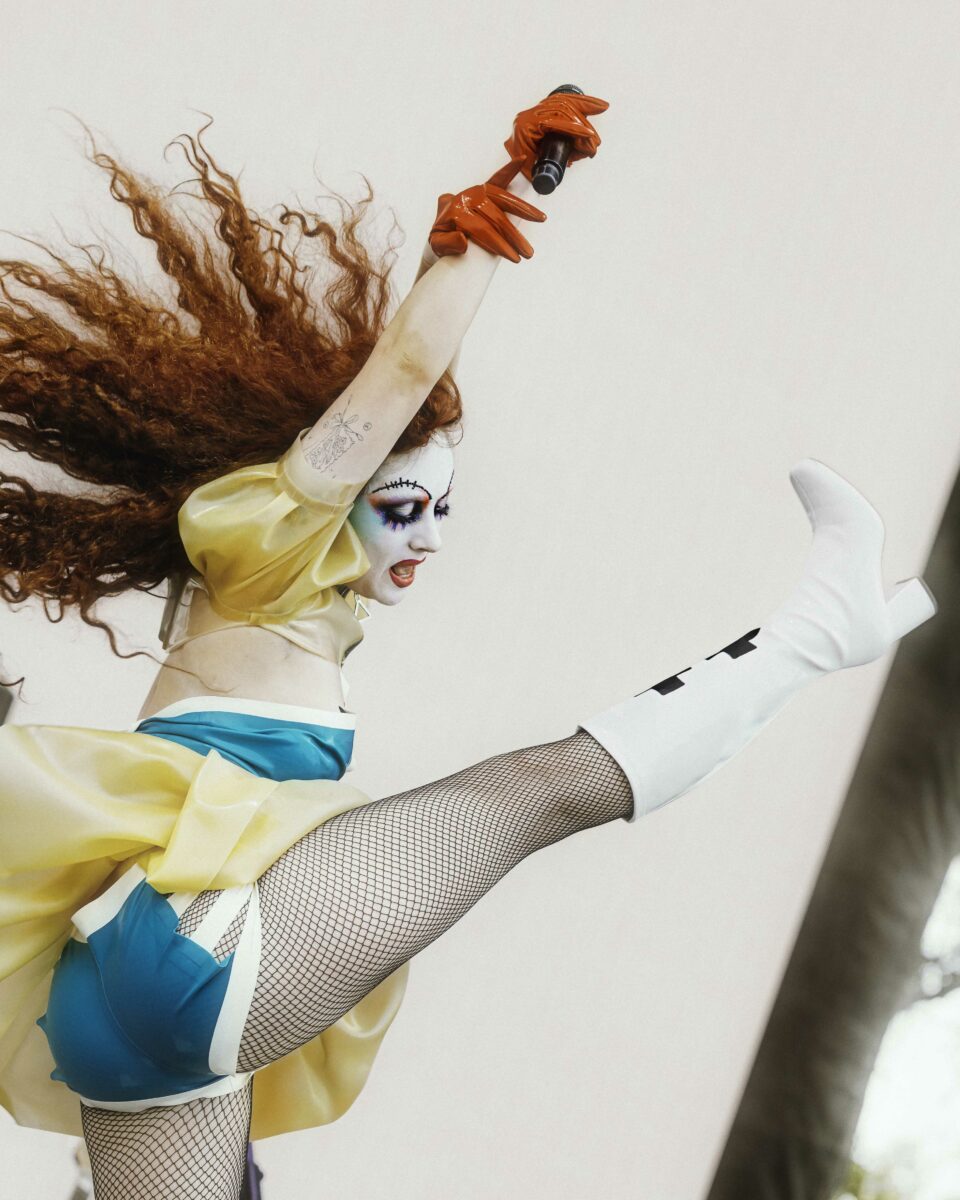
Bonnaroo 2024 / photo by Christian Sarkine
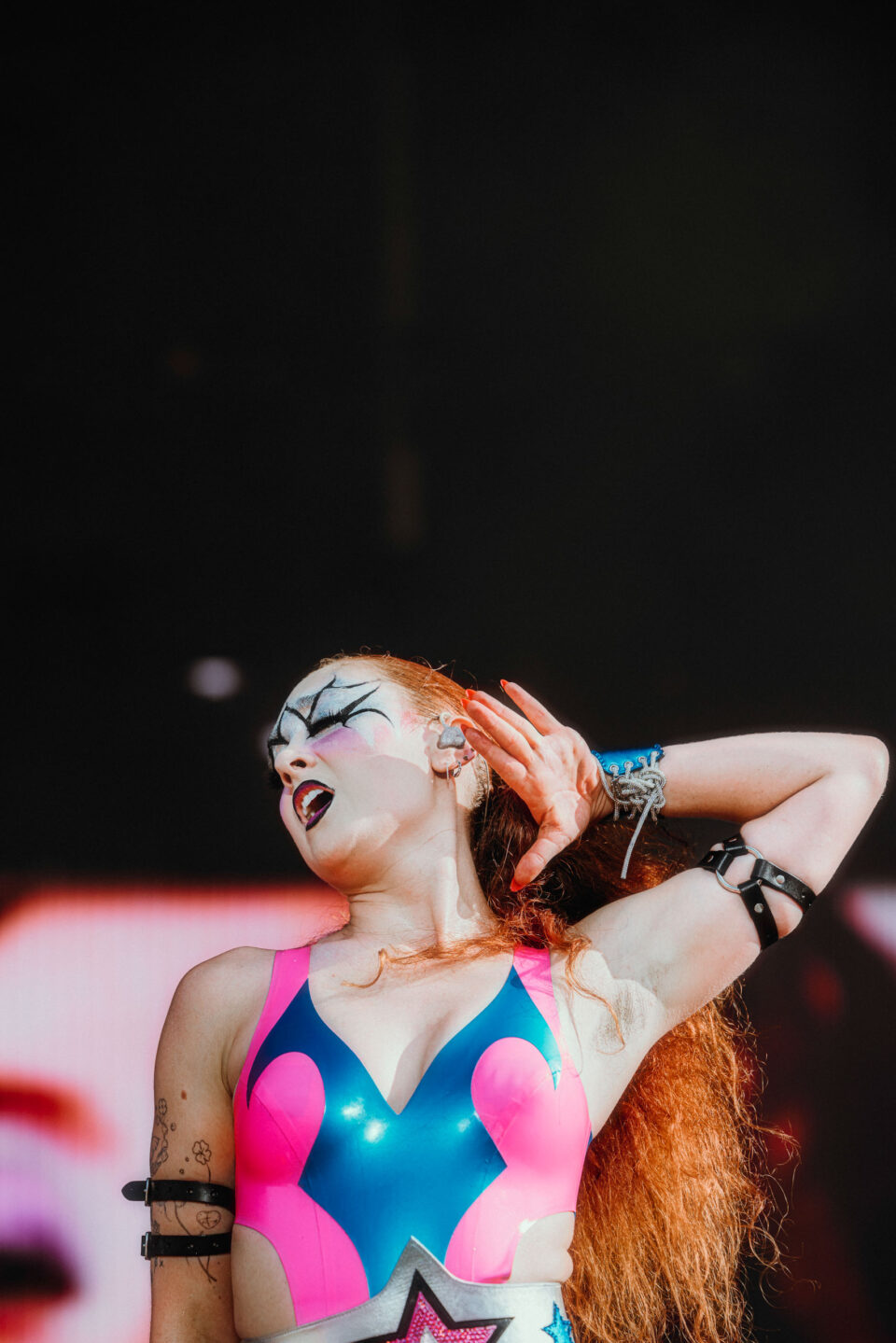
Chappell Roan / photo by Christian Sarkine
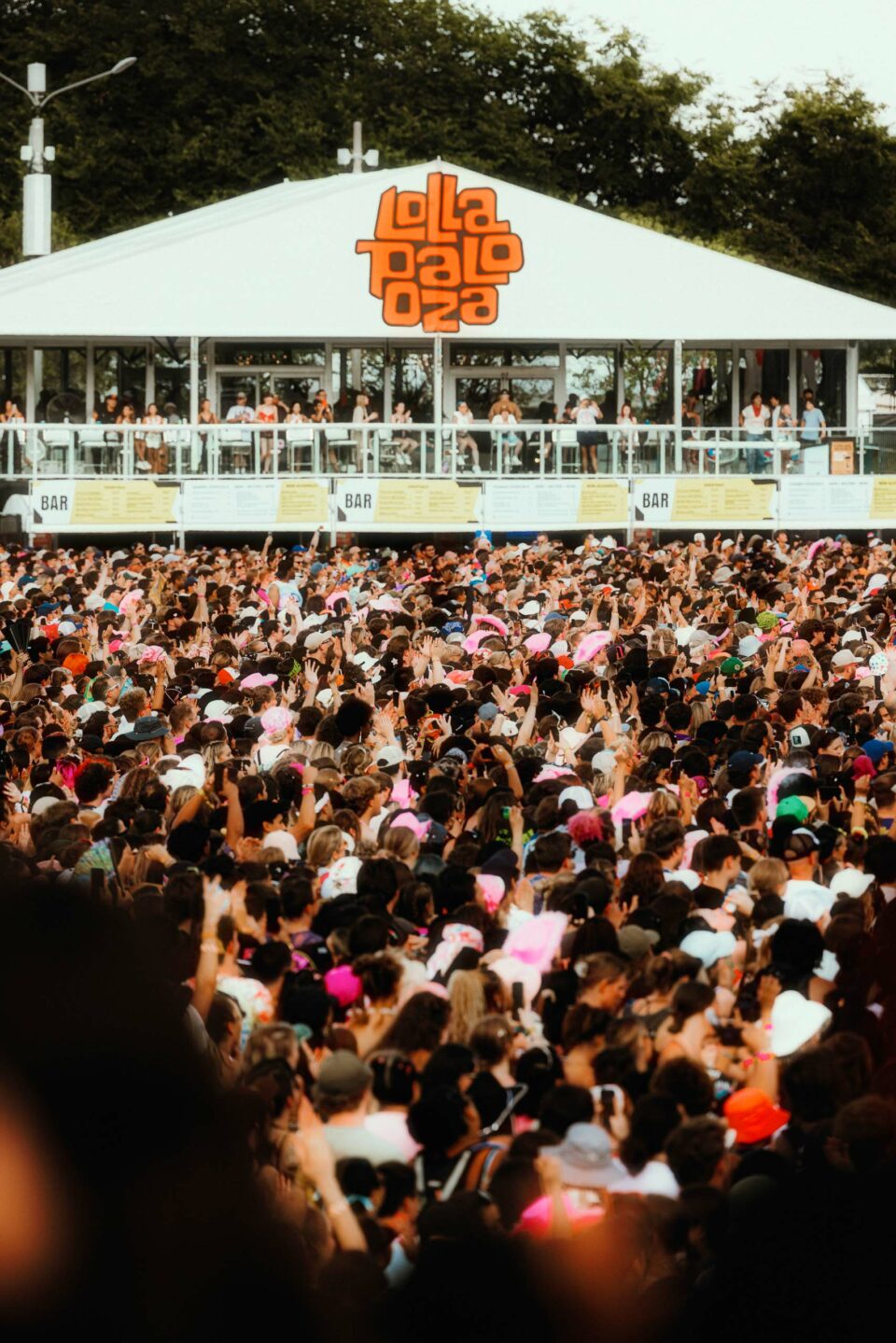
Chappell Roan / photo by Christian Sarkine
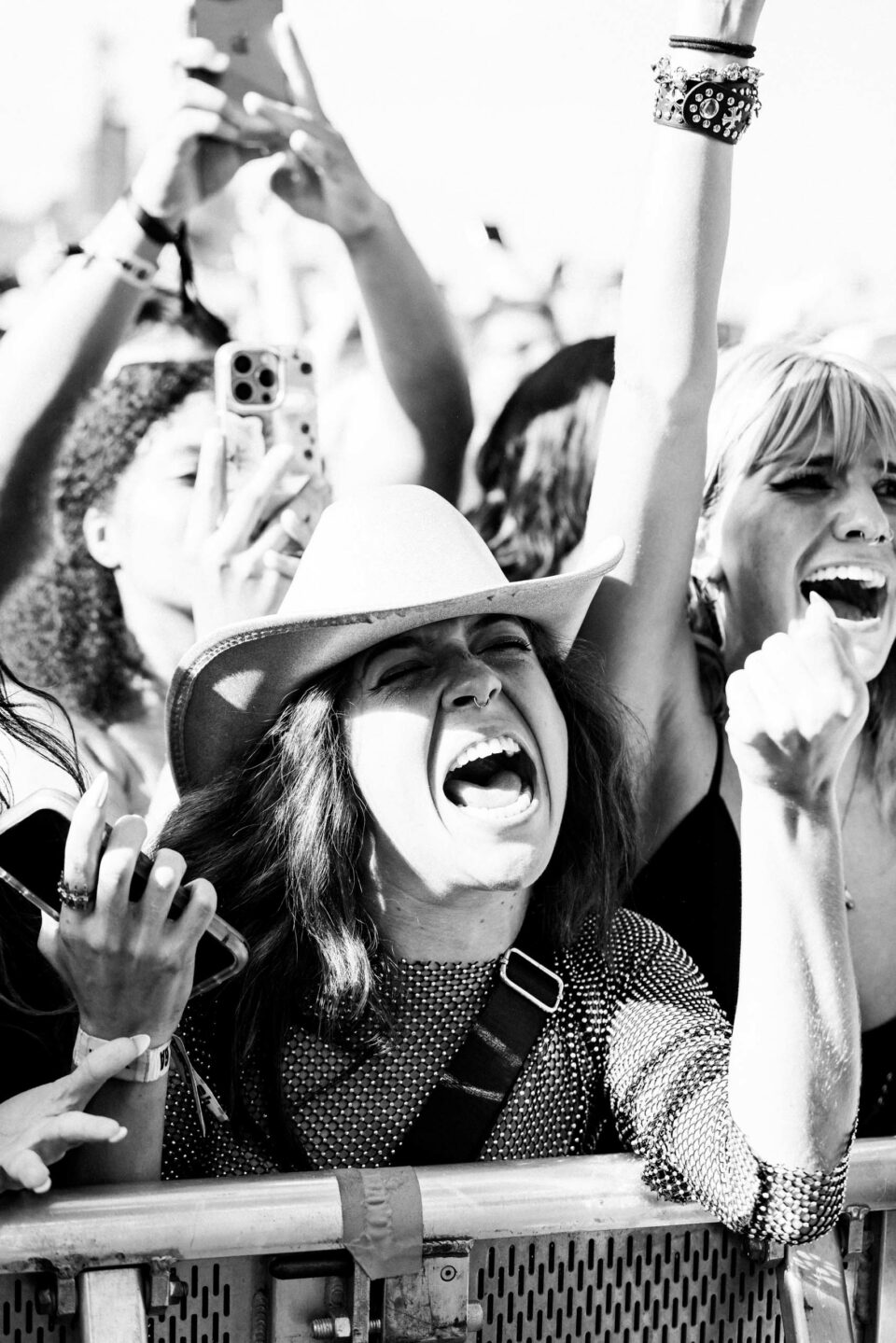
Chappell Roan / photo by Christian Sarkine
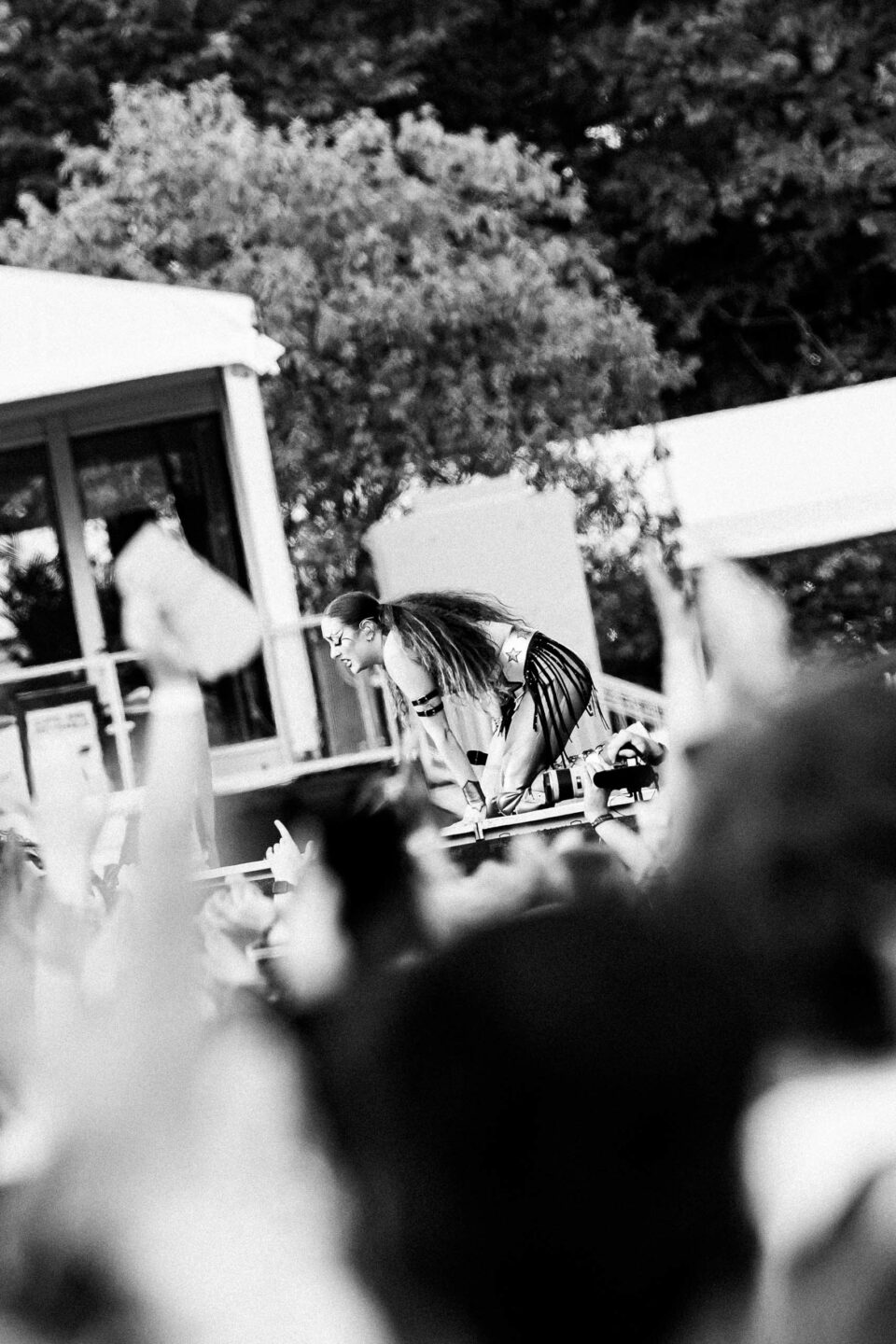
Lollapalooza 2024 / photo by Christian Sarkine
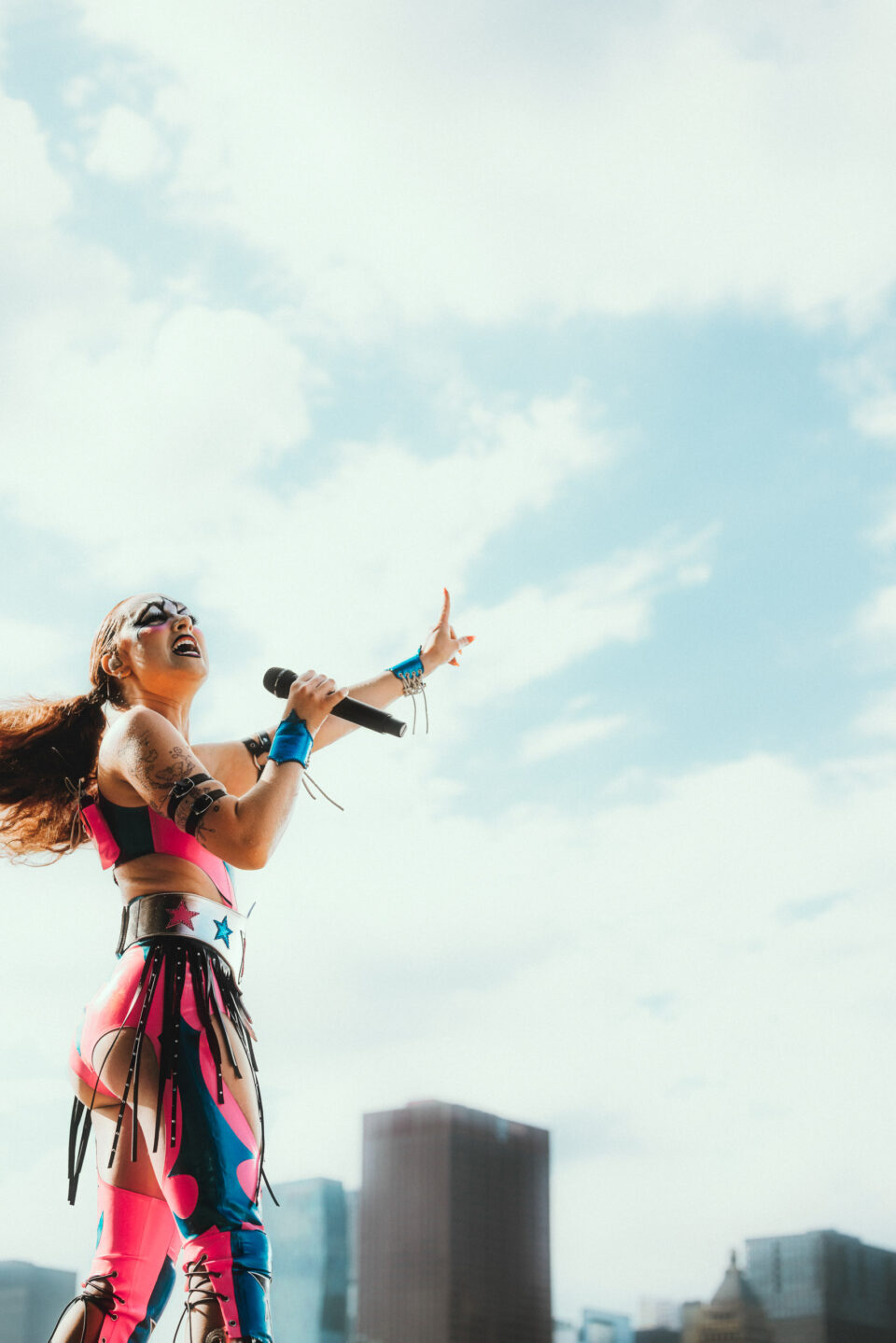
Lollapalooza 2024 / photo by Christian Sarkine
Roan’s brazen honesty about fame and fandom is refreshing. It’s not often we see an artist on their way up speaking so openly about the suffocating nature of the industry and calling for change and accountability. Despite the risks involved—losing fans, repelling her team and industry gatekeepers—she’s stood her ground and never changed her stance. And that’s obviously commendable. In an age when fans devalue art by pitting artists against one another (especially if you’re a woman) and glorifying chart stats, Chappell Roan emerged as a beacon to hold fans responsible for their toxic behaviors and mindsets.
Roan even made headlines this fall for confronting a photographer at the VMAs. The incident, caught on video, showed the popstar shouting “Shut the fuck up!” over the red carpet chatter and camera flashes. Her unwavering demeanor is unlike most pop artists these days; many would’ve simply ignored the paparazzi squawks, but not Roan. She later told Entertainment Tonight: “For someone who gets a lot of anxiety around people yelling at you, the carpet is horrifying, and I yelled back. You don’t get to yell at me like that.”
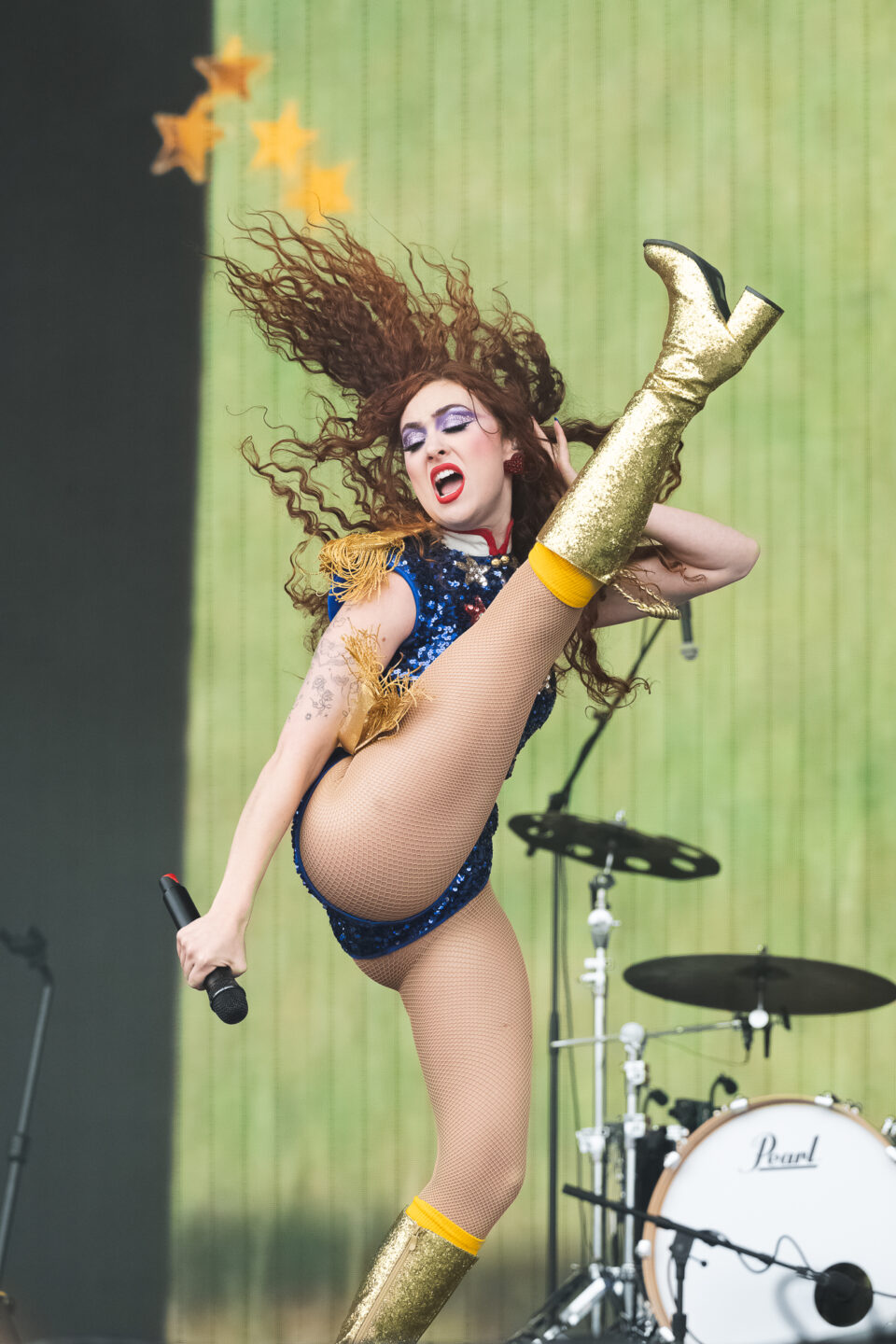
Chappell Roan
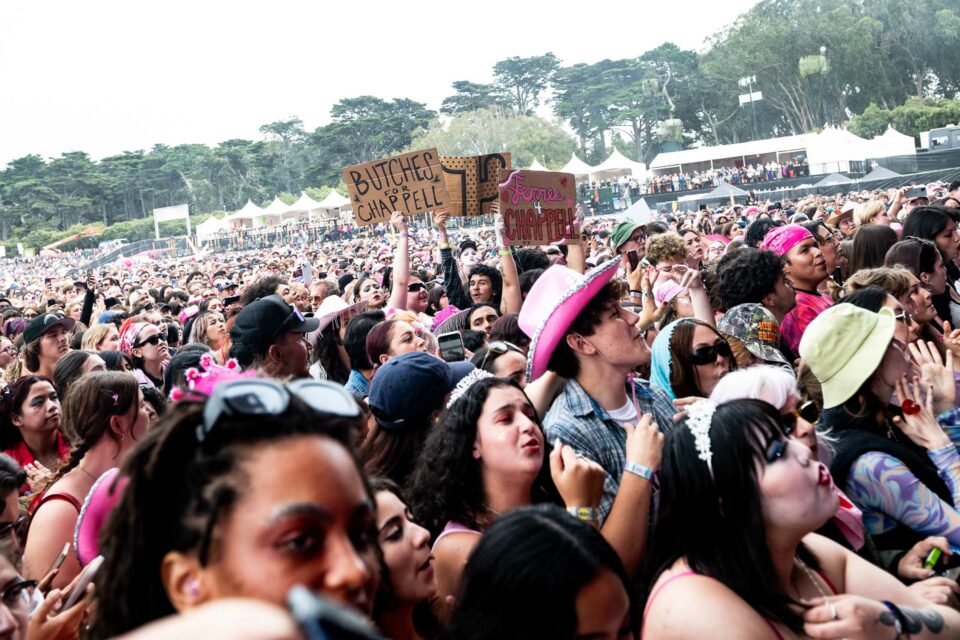
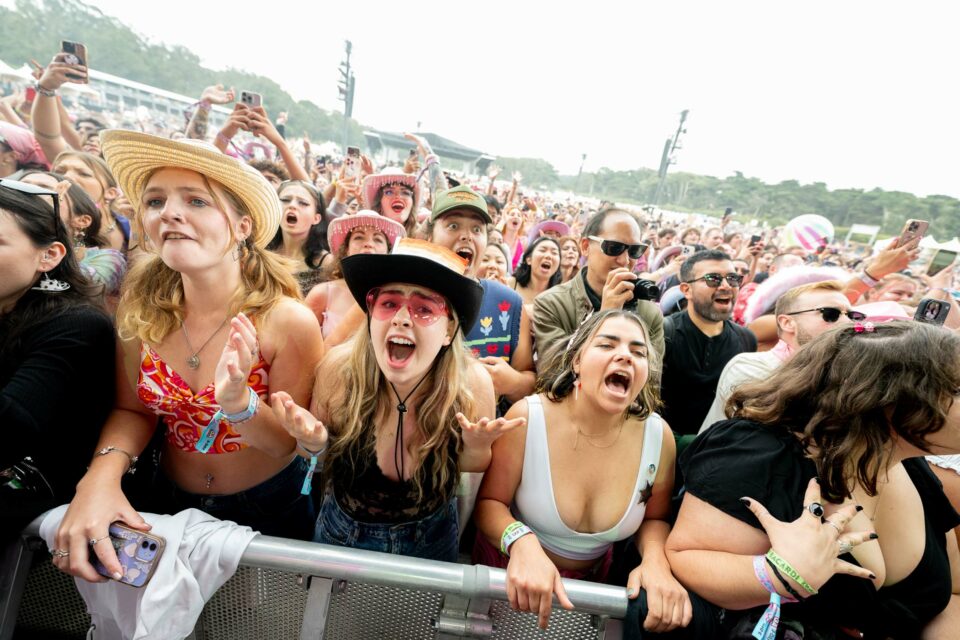
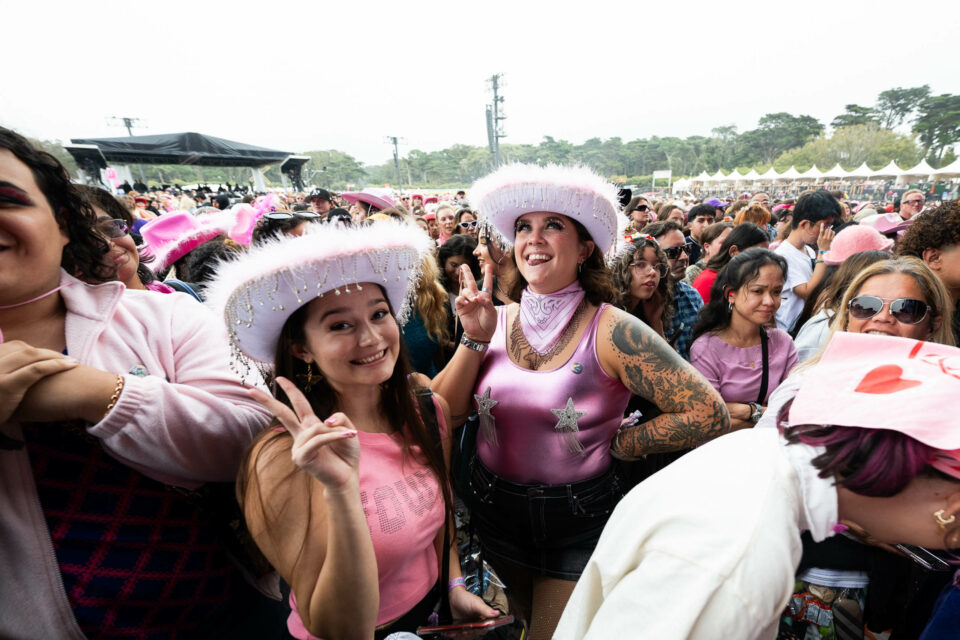
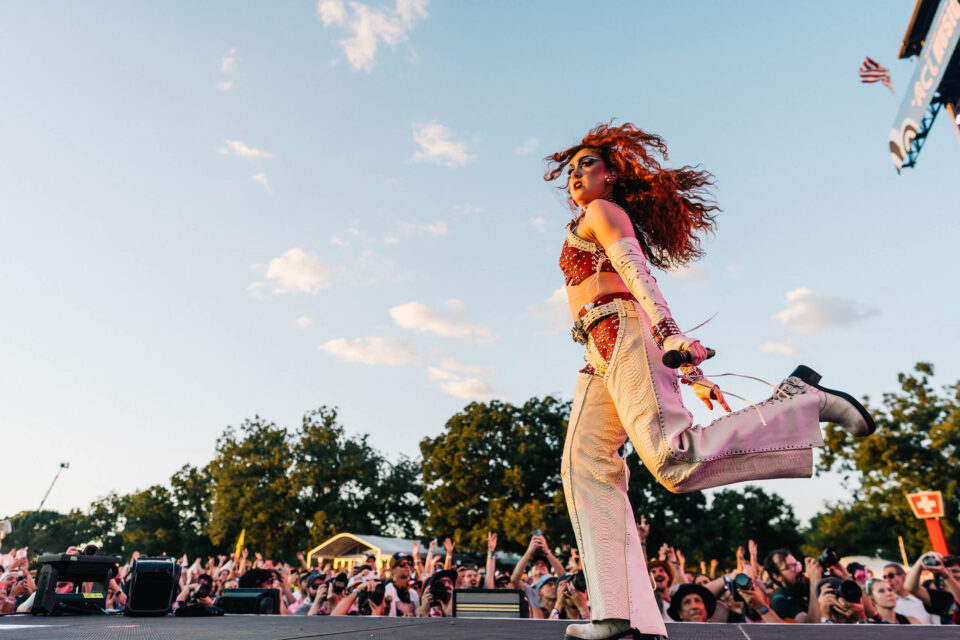
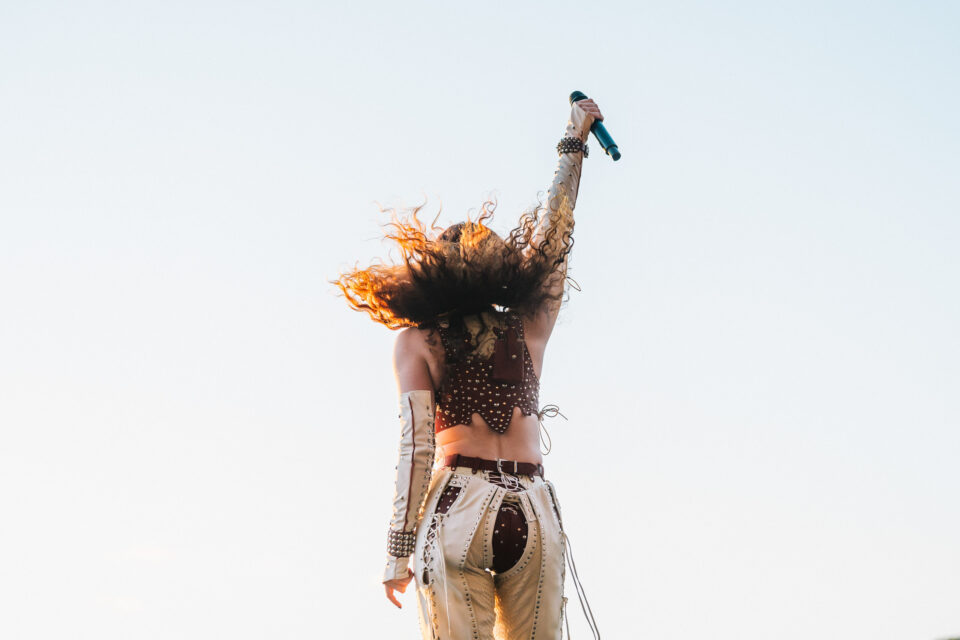
Chappell Roan at Austin City Limits 2024/ photo by Daniel Cavazos
A month later, Roan spotted another photographer who’d previously exhibited similar behavior at another event during a red-carpet event for the film premiere of Olivia Rodrigo: GUTS World Tour. Insisting they apologize, she can be heard saying in a video: “You yelled at me at the GRAMMY party. Yes, I remember. You were so rude to me. And I deserve an apology for that. You need to apologize to me.”
Roan boldly demands truth to power, daring to dismantle a system so egregiously built against women. While many male pop stars have faced equally unfair scrutiny, it’s their non-male counterparts who seem to get the brunt of online vitriol and unreasonable demands about how much superstars supposedly owe fans sacrificial parts of themselves. After all, fans possess all the power these days. From speaking with their wallets to leaving anonymous comments on social media posts and in online forums, fans can push an artist’s career forward or destroy it.
With Roan’s unwillingness to compromise and uphold the tired traditions of popstardom, she positions herself as the defining anti-popstar of today’s generation. And perhaps that distinction might signal a vital turning point in how we treat and identify with celebrities. Chappell Roan, a human just like the rest of us, deserves better. FL
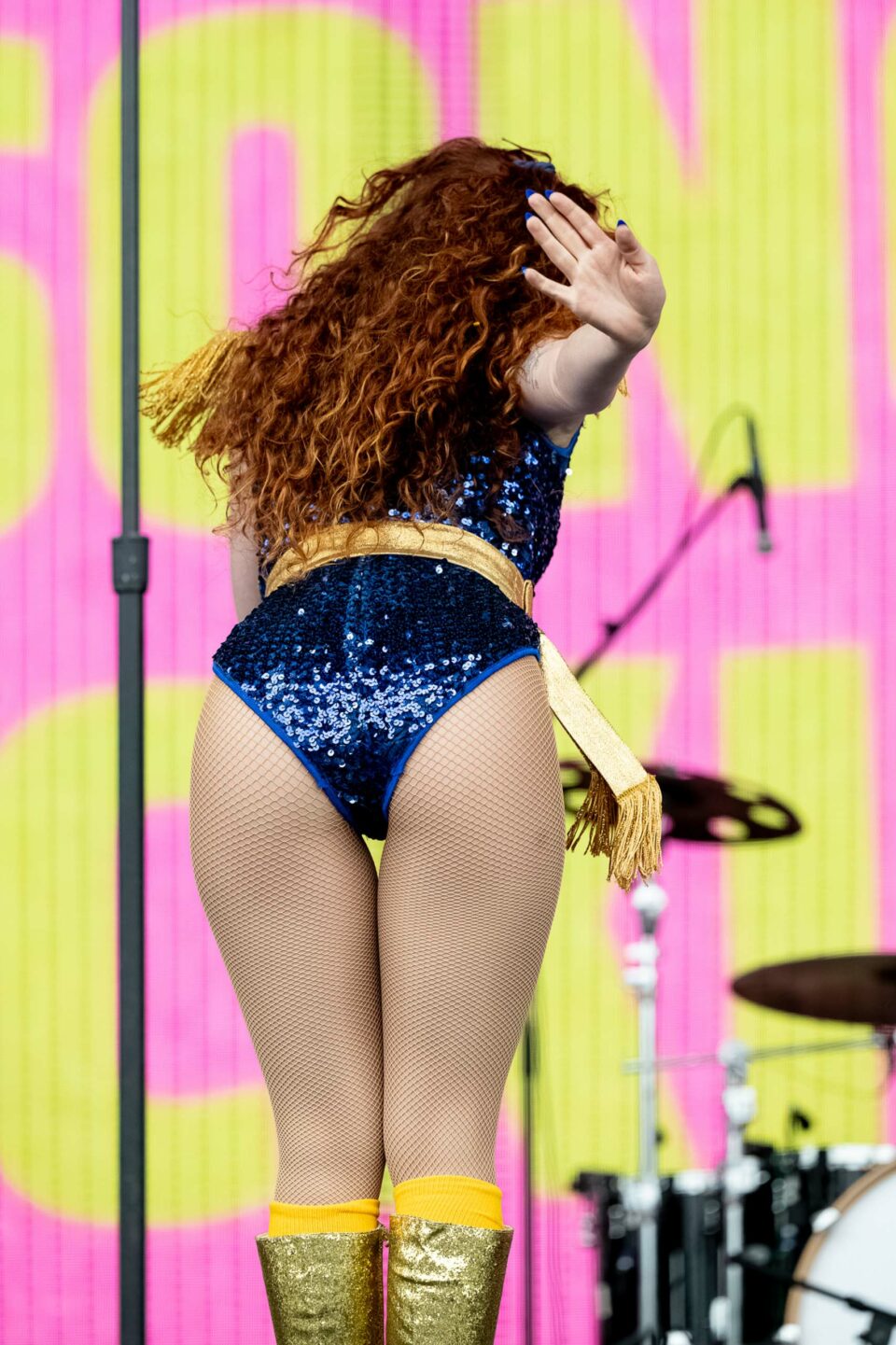
Chappell Roan at Outside Lands 2024/ photo by Wilson Lee

